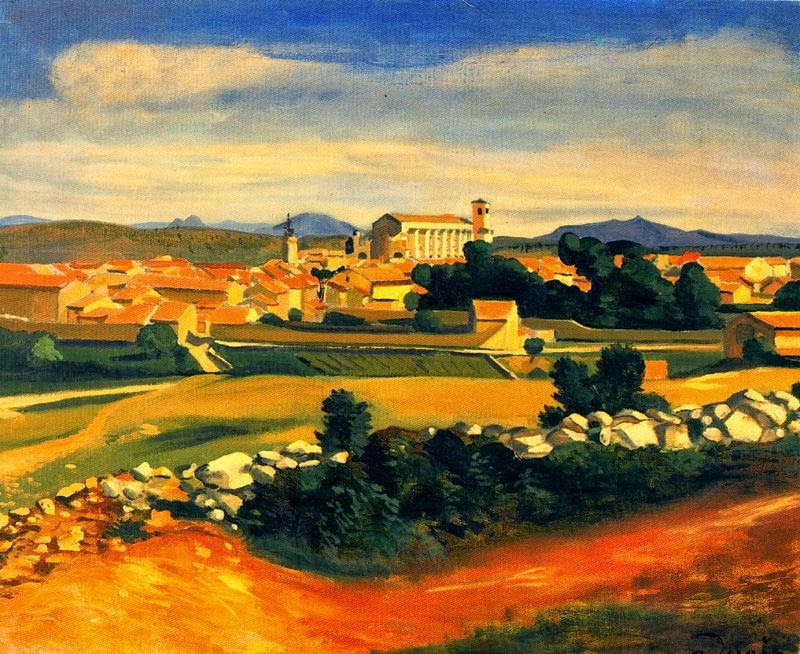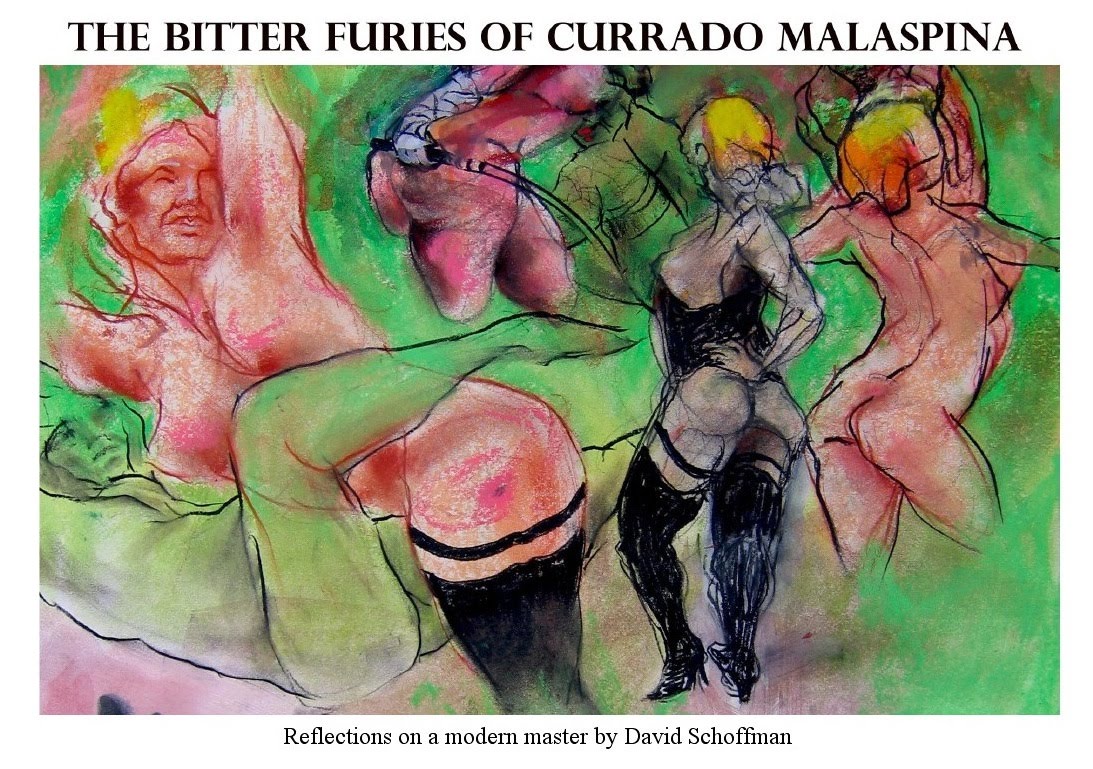My good friend Currado Malaspina has an uneasy relationship with nature. His indifference to plants, oceans and animals is not uncommon among the European intelligentsia. No less of an authority than Jean-Paul Sartre famously described trees as "des obstacles gênants à une pensée claire."*
It is therefore nothing less than astonishing that Malaspina has been spending the past year and a half making plein-air watercolors.
A radical departure from his normal practice, these small trifles, produced in situ, are redolent with the detestable vapors of academic revisionism.
This is no small matter.
Nowhere is the pernicious agon between progression and retrogression more tethered to Fascism than in France. One need only look at the questionable career of André Derain to find evidence for this uncomfortable yet valuable assertion.
Currado cries foul and claims an artful innocence when confronted with these facts but unlike the art world in the United States, in France ideas still matter.
"Sincerity is the comfort of infants and fools ."
This oft quoted line from the Australian poet K. C. Stengel's epic Always Last, has been evoked as an apologia for artists' behavior from Danton to Dubuffet. But what's forgotten about this modern master of terza rima is that he was above all else a satirist and it is precisely the lack of irony that makes Malaspina's new work so insidious.
The critics are having none of it and Currado has been roundly condemned from every corner.
It would be fitting to cite Stengel's quatrain in full for it is context that provides a deeper reading of his unusual ideas:
Gone are the nights of stories and tales
Sincerity is the comfort of infants and fools
Echos of lies lie deep in the shales
Smothered by mothers and brothers and schools.
 |
| Landscape, André Derain, 1930 |
Nowhere is the pernicious agon between progression and retrogression more tethered to Fascism than in France. One need only look at the questionable career of André Derain to find evidence for this uncomfortable yet valuable assertion.
Currado cries foul and claims an artful innocence when confronted with these facts but unlike the art world in the United States, in France ideas still matter.
"Sincerity is the comfort of infants and fools ."
This oft quoted line from the Australian poet K. C. Stengel's epic Always Last, has been evoked as an apologia for artists' behavior from Danton to Dubuffet. But what's forgotten about this modern master of terza rima is that he was above all else a satirist and it is precisely the lack of irony that makes Malaspina's new work so insidious.
The critics are having none of it and Currado has been roundly condemned from every corner.
It would be fitting to cite Stengel's quatrain in full for it is context that provides a deeper reading of his unusual ideas:
Gone are the nights of stories and tales
Sincerity is the comfort of infants and fools
Echos of lies lie deep in the shales
Smothered by mothers and brothers and schools.
from Always Last, K. C. Stengel
*Cumbersome obstacles to clear thinking






